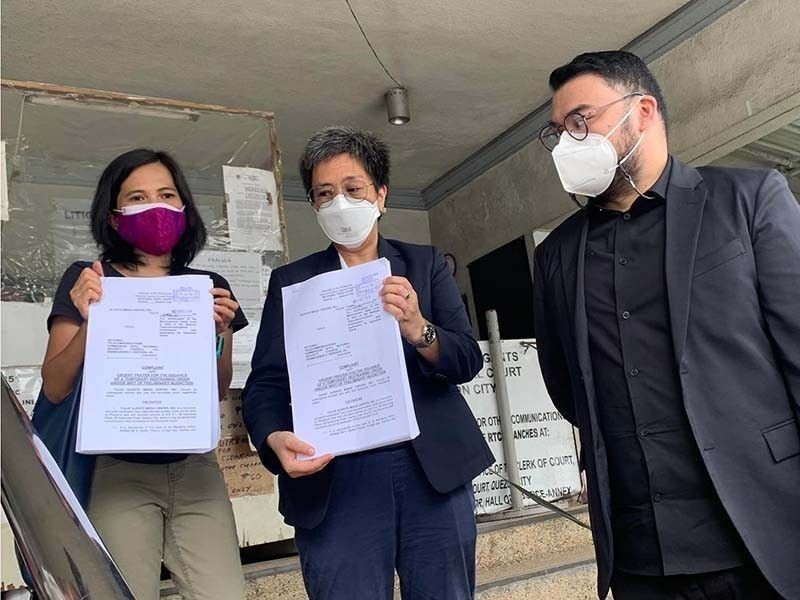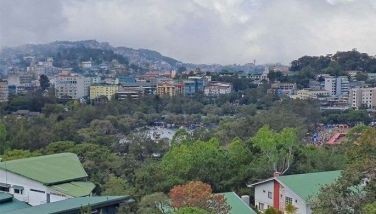Bulatlat appeals court rejection of TRO plea vs NTC blocking memorandum

MANILA, Philippines — Independent news site Bulatlat.com has appealed the Quezon City court’s rejection of their plea for a temporary stop order in the implementation of the National Telecommunications Commission’s memorandum blocking access to its website.
In their motion for reconsideration, Alipato Media Center that runs the website told the court that they suffer grave injustice or irreparable injury if the assailed memorandum, issued upon the request of then-National Security Adviser Hermogenes Esperon Jr., is not enjoined.
They also appealed to the court to grant their request for the issuance of a Temporary Restraining Order because the memo is “a content-based prior restraint on protected expression, which is unconstitutional.”
“Wherefore, premises considered, it is respectfully prayed of this Honorable Court that the July 13. 2022 order be reversed and set aside and a new one be entered issuing a [TRO] against the implementation of Defendant NTC’s Memorandum dated June 8, 2022,” they told the QC Regional Trial Court Branch 306.
The case stemmed from Esperon’s request to the NTC to block access to more than 20 websites, which progressive groups and even independent news sites that have long been subjected to red-tagging, for being “affiliated to and are supporting terrorists.”
Under the ATA and its Implementing Rules and Regulations, designation only triggers the power of the Anti-Money Laundering Council to freeze the assets of the listed groups. During oral arguments, government lawyers reiterated this before Supreme Court justices and the DOJ affirmed this position.
Irreparable injury
The court on July 13 rejected their plea for TRO because the website was supposedly accessible.
But they argued that “[w]hile defendants’ counsel were able to access Bulatlat.com for some unknown reason, the fact remains that the blocking is still in place pursuant to the assailed memorandum.”
“In her Judicial Affidavit, [Managing Editor Ronalyn] Olea testified that prior to the blocking, Bulatlat.com registered an average of 54,907 monthly unique visitors, but from June 8, 20222 until July 7, 2022, the website only registered only 31,136 unique visitors,” their appeal read.
They told the court that in the month when the memorandum was in effect, they lost 43% of their monthly subscribers.
“It is indubitable that Bulatlat.com is not accessible to a significant portion of the public. Hence, contrary to the Honorable Court’s finding, there is clear suppression of Plaintiff’s constitutionally guaranteed freedom of the press and freedom of expression,” they added.
Prior restraint
Bulatlat argued the memorandum constitutes prior restraint as it censors their website off the internet prior to publication. It also stressed that the memo is a content-based prior restraint since the order was directed at content of websites which Esperon said were “found to be affiliated to and supporting terrorists and terrorist organizations,” which the media company already denied.
In Chavez v. Gonzales, the Supreme Court referred to prior restraint as “official governmental restrictions on the press or other forms of expression in advance of actual publication or dissemination.” In the same landmark ruling, they stressed that the SC held that content-based prior restraint is presumed unconstitutional and will only pass constitutional muster it if overcomes the strict scrutiny and the clear and present danger rule.
But Bulatlat argued that in their case, there is no evidence of a clear and present danger. The memorandum also does not show it serves substantial government interest.
“If the questioned act requires some form of permission to be had before publication can be made, then an infringement of constitutionally-protected freedoms already exists. The strong arm of equity or transcendent remedy of injunctive reliefs must come in,” their motion read.
- Latest
- Trending


































